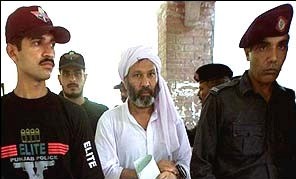The case of Anwar Kenneth, a mentally unstable prisoner who has languished on death row for over 23 years, is a heart-wrenching testament to the complex intersections of justice, mental health, and human dignity. Convicted under Pakistan’s blasphemy laws, Kenneth’s prolonged imprisonment and deteriorating mental health have sparked deep concerns among minority rights activists, who are urgently calling for his fair treatment and an expedited resolution to his legal proceedings.
Since his arrest in 2001, Anwar Kenneth has faced relentless adversity. Accused of sending objectionable letters to religious leaders and international dignitaries, he was convicted under Section 295-C of the Pakistan Penal Code—a charge that carries the death penalty. The trial, marred by his refusal to accept legal counsel and the subsequent withdrawal of five appointed lawyers, proceeded without a robust defense. In 2002, he was sentenced to death, a decision upheld by the Lahore High Court in 2014.
The conditions of Kenneth’s imprisonment have compounded his suffering. Despite his fragile mental health, he has been confined under harrowing conditions, often shackled, a stark violation of human dignity. This inhumane treatment, coupled with the lack of timely psychiatric intervention, underscores a glaring failure of the criminal justice system to account for the needs of vulnerable individuals.
Kenneth’s mental health has been a persistent concern throughout his imprisonment. Diagnosed with Bipolar Affective Disorder, currently Hypomanic, by a medical board in December 2024, he was recommended for admission to the Punjab Institute of Mental Health (PIMH), Lahore. Activists argue that his mental condition not only renders his confinement cruel but also raises significant questions about the fairness of his trial and the moral justification for his continued detention.
The absence of adequate legal representation further complicates Kenneth’s case. His insistence that “God is his counsel” left him without a meaningful defense, a situation exacerbated by the sensitivity surrounding blasphemy cases in Pakistan. The Supreme Court’s intervention in 2023, directing the Pakistan Bar Council to appoint legal representation, was a crucial but delayed step toward justice.
Kenneth’s plight is a stark reminder of the systemic issues faced by individuals with mental illnesses in Pakistan’s justice system, particularly in cases involving blasphemy accusations. Minority rights activists emphasize that the intersection of mental health and criminal justice demands urgent attention. They call for Kenneth’s immediate transfer to a psychiatric facility, as recommended by the medical board, and a fair resolution of his pending appeal.
Moreover, his case underscores the broader need for reform. The justice system must ensure that individuals accused under blasphemy laws receive due process and that their mental health conditions are adequately addressed. The lack of safeguards compromises the rights of the accused and erodes the principles of justice and humanity.
As Kenneth’s case draws attention, it challenges society to reflect on its commitment to justice, compassion, and the inherent dignity of every individual. The prolonged suffering of a mentally ill prisoner on death row is not just a legal failure—it is a moral failure. Authorities must act swiftly to uphold Kenneth’s right to humane treatment and a fair trial, setting a precedent that prioritizes human dignity and justice over fear and prejudice.
The story of Anwar Kenneth is not just his alone; it reflects the values we choose to uphold as a society. The time to act is now.
